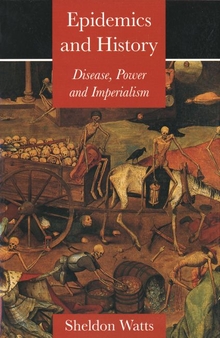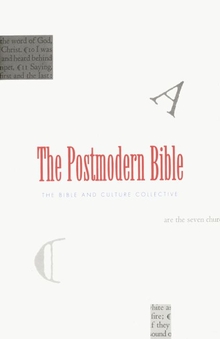Epidemics and History
WARNING
You are viewing an older version of the Yalebooks website. Please visit out new website with more updated information and a better user experience: https://www.yalebooks.com
Disease, Power and Imperialism
Sheldon Watts
"Fascinating . . . [Watts] exposes to daylight the dire effect of the elites' often misinformed conception of these diseases, and how they, the elites, manipulated epidemiological crises to their advantage."—Alfred Crosby, Washington Post
This book is a major and wide-ranging study of the great epidemic scourges of humanity—plague, leprosy, smallpox, syphilis, cholera, and yellow fever/malaria—over the last six centuries. It is also much more. Sheldon Watts applies a wholly original perspective to the study of global disease, exploring the connections between the movement of epidemics and the manifestations of imperial power in the Americas, Asia, Africa, and in European homelands. He argues that not only did Western medicine fail to cure the diseases that its own expansion engendered, but that imperial medicine was in fact an agent and tool of empire.
Watts examines the relationship between the pre-modern and modern medical profession and such epidemic disasters as the plague in western Europe and the Middle East; leprosy in the medieval West and in the nineteenth-century tropical world; the spread of smallpox to the New World in the age of exploration; syphilis and nonsexual diseases in Europe’s connection with Asia; cholera in India during British rule; and malaria in the Atlantic Basin during the eras of slavery and Social Darwinism. This book will become the standard account of the way diseases—arising through chance, through reckless environmental change engineered by man, or through a combination of each—were interpreted in Western Europe and in the colonized world, and offers an interesting historical perspective for a world dealing with the spread of COVID-19.
A selection of Readers' Subscription
"[Watts] presents what is . . . one of the best portrayals of life in Europe and the Islamic world during the medieval Great Plague, focusing on the social, religious, and political activities that spread the disease, and on the economic fallout. . . . Watts offers solid, stunning examples of Western idiocy that created superhighways for once-obscure microbes, leading to horrendous epidemics. . . . His is a perspective that Western, particularly Caucasian, policy-makers would do well to comprehend."—Laurie Garrett, Foreign Affairs
"[Watts] shows how widely human predatory instincts have always conditioned attitudes to disease so as to exploit any prevailing epidemic—the darker side of history, as it were, and a compelling and dramatic read."—Alan Cameron, Lloyd's List
"College-level students in a variety of disciplines will find it revealing and important."—Bookwatch
"A major and wide-ranging study of the great epidemic scourges of humanity."—Microsoft Network's Reading Forum
"This is a masterful survey well grounded on a mass of research."—Contemporary Review
"Particularly interesting is Watt's account of popular interpretation of epidemics as divine revenge on sinners."—VA Quarterly
"Epidemics and History is episodic history."—Andrew Wear, Times Literary Supplement
"Epidemics and History is very well written. . . It is also remarkably free of the jargon that too often characterizes discussions of the social consequences of disease. . . . The convenience of so much history of diseases in one place is obvious. [An] engrossing book."—Gert H. Grieger, M.D., Ph.D., Johns Hopkins University School of Medicine, New England Journal of Medicine
"This book is an example of hellfire-and-brimstone history writing, well-informed but overflowing with passionate sermons. Nonetheless, it's fascinating."—Alfred W. Crosby, Washington Post
"An important contribution to our understanding of the history of disease, public health, and imperialism."—Suzanne Austin Alchon, American Historical Review
"This trenchant book provides a salutary antidote to world health complacency, past and present."—Roy Porter, The Times (London)
"Watts'. . . mastery of six centuries of Western-influenced infectious disease and sanitation history is impressive. He also writes with authority about the pre-modern and modern medical profession."—Claire Panosian, Los Angeles Times Book Review
"[This book] focuses on humans’ role in perpetuating their own worst diseases. . . Watts explains not just the science and history of epidemics but how they were interpreted by elites and how this interpretation resulted in very material consequences for those they ruled and conquered. . . It is earth’s utter lack of balance socially, commercially, industrially, environmentally that should frighten us. Holub has the most poignant and useful advice: You can’t restore the old equilibrium, even if you call it a paradise, which is pure romanticism. Try to establish a new one instead."—Joe Knowles, Nation
"Watts has read widely and perceptively. . . . The convenience of so much history of disease in one place is obvious. To obtain such broad coverage, readers would have to consult the dozens of monographs Watts has read and cited. [The book] is also remarkably free of the jargon. . . [A] engrossing book."—Gert Breiger, M.D., Ph.D, Johns Hopkins University School of Medicine
"Fascinating . . . [Watts] exposes to daylight the dire effect of the elites often misinformed conception of these diseases, and how they, the elites, manipulated epidemiological crises to their advantage."—Alfred Crosby, Washington Post
"Epidemics and History is a major contribution to the worthy tradition established by Plagues and Peoples. Watts range is as wide as his predecessor's—there are chapters on plague, leprosy, smallpox, syphilis, cholera, yellow fever, and malaria. His learning is as deep."—Malcolm Nicolson, British Journal of General Practice
"Watts deserves enormous credit for a pioneering work that integrates disease into the mechanisms of imperialism in a manner that both builds on and transcends the earlier contributions of McNeill and Crosby."—Howard I. Kushner, Journal of Social History
"This is a well researched book that powerfully explains how epidemics became instruments of imperial expansion and domination. . . . This study . . . is a great addition to the study of imperialism. It should find a wide audience among historians, social scientists, and even policy makers in the medical profession."—Reuben O. Mekenye, The Historian
"This is useful book, if only for the richness of its footnotes that often completely survey the literature on each disease Watts considers. It will make for a nice contrast with Jared Diamond's Guns, Germs and Steel: The Fates of Human Societies in seminars concerning not just the world history of medicine but world history in general. Both books bring disease to the center of the controversy over the current distribution of power in the world, and add considerably to our understanding of contemporary patterns of civilization."—Margaret Humphreys, Bulletin of the History of Medicine
"Watts deserves enormous credit for a pioneering work that integrates disease into the mechanisms of imperialism in a manner that both builds on and transcends the earlier contributions of McNeill and Crosby."—Howard I. Kushner, Journal of Social History
"Watts provides a broad, sweeping history of the interaction of the West with the non-Western world in the field of disease."—William B. Cohen, Military History
"In conception and in the impressive range and diversity of secondary sources Sheldon Watts has consulted in its preparation, Epidemics and History has much to recommend it as a work of historical synthesis."—Michael Adas, Journal of Modern History
"For the student of world history this book provides an excellent demonstration of the uses of the comparative approach. . . . This new work on the relationship between disease and European imperialism is a valuable one, quite readable for the nonspecialist, and one that provides new insight."—Noble David Cook, Journal of World History
Publication Date: November 10, 1999
42 b/w illus.








